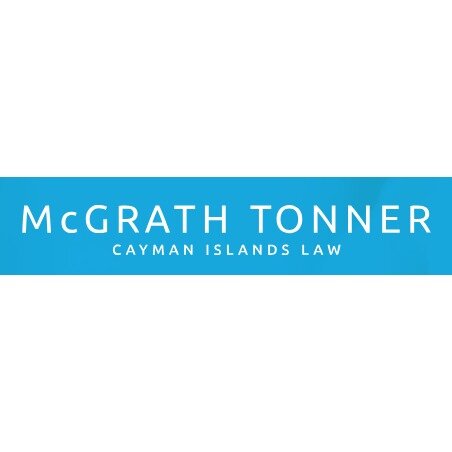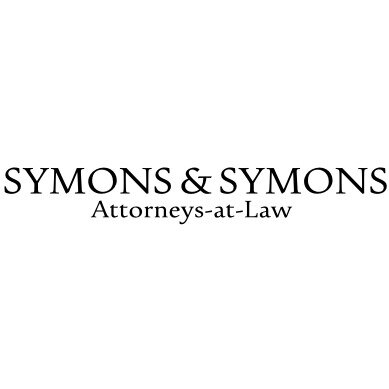Best Commercial Real Estate Lawyers in Cayman Islands
Share your needs with us, get contacted by law firms.
Free. Takes 2 min.
Free Guide to Hiring a Real Estate Lawyer
Or refine your search by selecting a city:
List of the best lawyers in Cayman Islands
About Commercial Real Estate Law in Cayman Islands:
Commercial real estate refers to properties that are used for business purposes, such as office buildings, retail spaces, and industrial facilities. In the Cayman Islands, commercial real estate transactions are governed by specific laws and regulations that may differ from residential real estate transactions. Understanding these laws is crucial for protecting your interests in commercial real estate transactions.
Why You May Need a Lawyer:
There are several situations where you may need a lawyer specializing in commercial real estate in the Cayman Islands:
- Buying or selling commercial property
- Leasing commercial property
- Negotiating contracts or agreements
- Resolving disputes with landlords or tenants
- Seeking advice on zoning or land use regulations
Local Laws Overview:
In the Cayman Islands, commercial real estate transactions are governed by a combination of common law principles and specific regulations. Some key aspects of local laws that are particularly relevant to commercial real estate include:
- Land registration requirements
- Zoning and land use regulations
- Tax implications of commercial real estate transactions
- Environmental regulations
- Laws governing landlord-tenant relationships
Frequently Asked Questions:
1. Can a foreigner buy commercial real estate in the Cayman Islands?
Yes, foreigners can buy commercial real estate in the Cayman Islands, but they may be subject to certain restrictions and requirements. It is advisable to seek legal advice before making a purchase.
2. What are the taxes involved in commercial real estate transactions?
There are various taxes involved in commercial real estate transactions in the Cayman Islands, such as stamp duty and property tax. Your lawyer can provide guidance on tax implications.
3. How can I resolve a dispute with my landlord or tenant?
If you have a dispute with your landlord or tenant, it is advisable to seek legal advice to understand your rights and options for resolving the dispute, which may involve negotiation, mediation, or legal action.
4. Are there restrictions on the use of commercial property in the Cayman Islands?
Yes, there are zoning and land use regulations in place in the Cayman Islands that restrict the use of commercial property. It is important to be aware of these regulations when buying or leasing commercial property.
5. What are the key considerations when negotiating a commercial lease?
When negotiating a commercial lease, it is important to consider factors such as rent, lease term, maintenance responsibilities, and renewal options. A lawyer can help ensure that the lease terms are fair and favorable to you.
6. What are the steps involved in buying commercial real estate in the Cayman Islands?
The steps involved in buying commercial real estate in the Cayman Islands typically include property due diligence, negotiation of terms, exchange of contracts, and completion. A lawyer can guide you through each step of the process.
7. How can I protect my interests in a commercial real estate transaction?
To protect your interests in a commercial real estate transaction, it is essential to have a thorough understanding of the laws and regulations governing the transaction. A lawyer can help identify potential risks and negotiate terms that are favorable to you.
8. What are my rights as a commercial property owner in the Cayman Islands?
As a commercial property owner in the Cayman Islands, you have various rights related to property use, lease agreements, and property maintenance. A lawyer can help you understand and enforce your rights as a property owner.
9. What are the common pitfalls to avoid in commercial real estate transactions?
Common pitfalls to avoid in commercial real estate transactions include inadequate due diligence, unclear lease terms, and failure to comply with regulations. Working with a lawyer can help you avoid these pitfalls and navigate the transaction successfully.
10. How can I find a reputable lawyer for commercial real estate matters in the Cayman Islands?
You can find a reputable lawyer for commercial real estate matters in the Cayman Islands by seeking recommendations from other professionals in the industry, researching online reviews, and interviewing potential candidates to ensure they have the expertise and experience you need.
Additional Resources:
For additional resources related to commercial real estate in the Cayman Islands, you can contact the Cayman Islands Real Estate Brokers Association (CIREBA) or consult the Cayman Islands Department of Planning for information on zoning and land use regulations.
Next Steps:
If you require legal assistance with a commercial real estate matter in the Cayman Islands, it is advisable to contact a lawyer specializing in commercial real estate law. A lawyer can provide personalized advice and guidance to help you navigate the complexities of commercial real estate transactions and protect your interests.
Lawzana helps you find the best lawyers and law firms in Cayman Islands through a curated and pre-screened list of qualified legal professionals. Our platform offers rankings and detailed profiles of attorneys and law firms, allowing you to compare based on practice areas, including Commercial Real Estate, experience, and client feedback.
Each profile includes a description of the firm's areas of practice, client reviews, team members and partners, year of establishment, spoken languages, office locations, contact information, social media presence, and any published articles or resources. Most firms on our platform speak English and are experienced in both local and international legal matters.
Get a quote from top-rated law firms in Cayman Islands — quickly, securely, and without unnecessary hassle.
Disclaimer:
The information provided on this page is for general informational purposes only and does not constitute legal advice. While we strive to ensure the accuracy and relevance of the content, legal information may change over time, and interpretations of the law can vary. You should always consult with a qualified legal professional for advice specific to your situation.
We disclaim all liability for actions taken or not taken based on the content of this page. If you believe any information is incorrect or outdated, please contact us, and we will review and update it where appropriate.
Browse commercial real estate law firms by city in Cayman Islands
Refine your search by selecting a city.
















